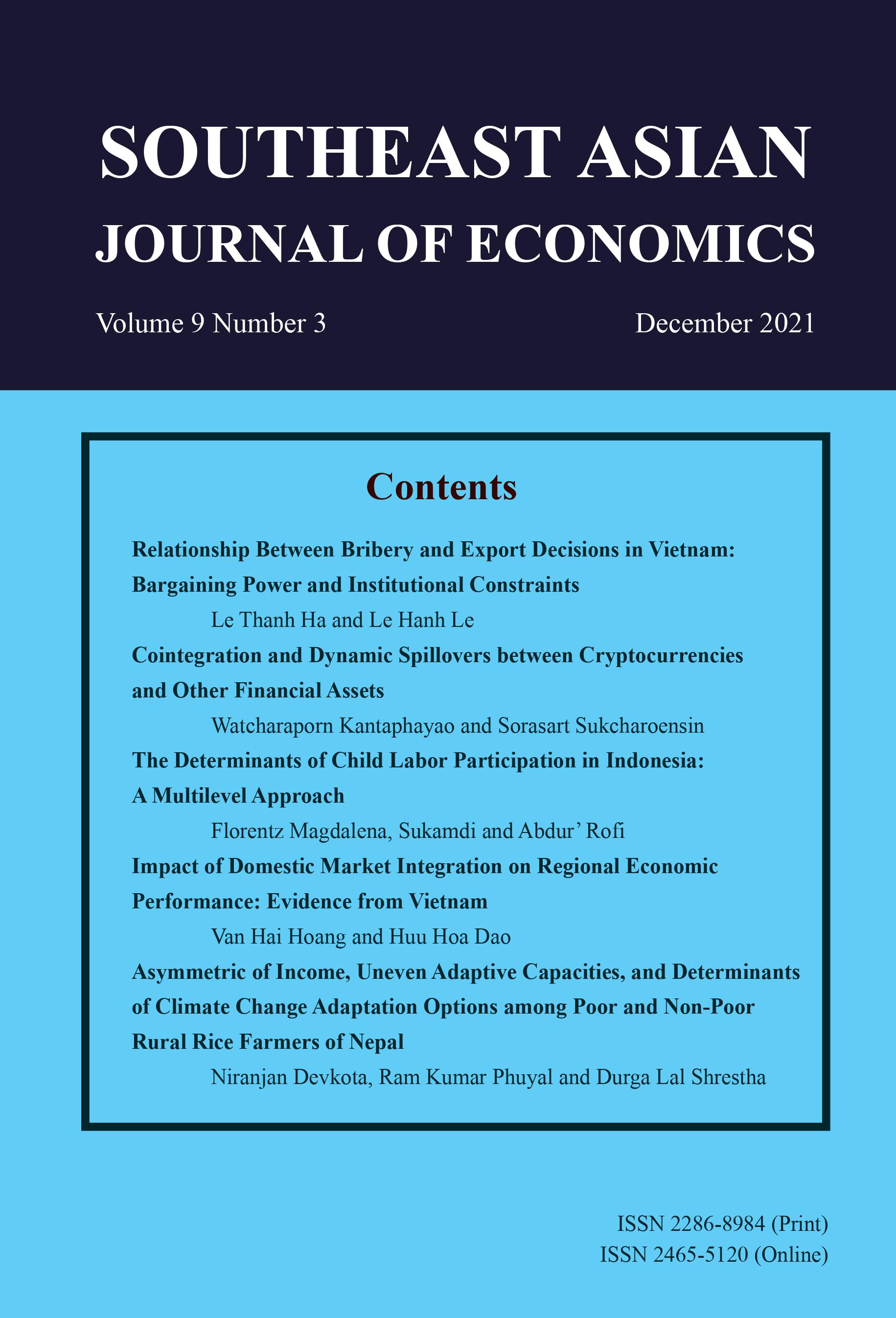Relationship Between Bribery and Export Decisions in Vietnam: Bargaining Power and Institutional Constraints
Keywords:
greasing bribery, rent-seeking bribery, export decision, bargaining power, institutional constraintsAbstract
This paper uses firm-level data from the Vietnam Small and Medium-sized Enterprises Surveys from 2005 to 2015 to examine the effects of bribery on export decisions. We separate bribery behavior into two types: “greasing” bribery and “rent-seeking” bribery. Our empirical results provide evidence to support the hypothesis of “greasing the wheel” by pointing out positive effects of greasing bribery on export decisions. By contrast, rentseeking bribery has negative effects on firms’ export decisions. Moreover, under the moderation of bargaining power (proxied by firm size), bribery has stronger impacts on export decisions of larger-sized firms. Institutional constraints, including policy uncertainty and unfair competition, weaken the effect of bribery on export decisions.
Downloads
Published
How to Cite
Issue
Section
License
The submission of a manuscript implies that the paper is an original work and has not been published elsewhere. The author(s) authorize the journal to reproduce or distribute the paper in printed or other electronic forms.







